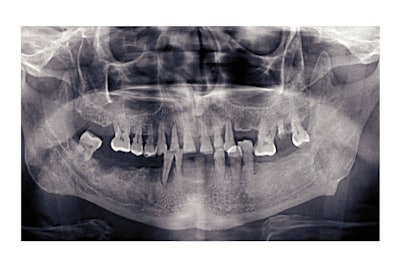
Older adults with obesity are significantly more likely to have fewer teeth and not as many back teeth that occlude and a lack of functional dentition, according to a study conducted by the Rutgers School of Health Professions.
Back teeth are essential for chewing, making it more difficult to eat healthy foods like raw vegetables and fruit, according to university news published on June 25.
"Dentists might be able to reduce the problem by educating patients on how to adapt healthier foods to make them easier to eat, by peeling, cutting, cooking, or blending them," Rena Zelig, lead author of the study, said in the story.
For this study, researchers analyzed data from 1,765 adults ages 65 to 89 who received treatment at the Rutgers School of Dental Medicine between 2016 and 2022. To explore the relationship between the number of teeth and body mass index (BMI), they employed statistical methods that adjusted for factors such as age, gender, and preexisting health conditions.
Approximately 73% of the participants were either overweight or obese. The median number of remaining teeth was 20, which was just below the threshold of 21 needed for functional chewing. However, 45% of participants had at least 21 teeth.
Furthermore, each additional missing tooth was associated with a 2% increase in the likelihood of obesity, and each missing pair of opposing molars was linked to a 7% increase in the likelihood of obesity, according to the story.
Unlike back teeth, which are more crucial for chewing, the front teeth are generally used for biting into food and did not significantly affect weight status. There was no notable connection between the number of pairs of front teeth and BMI, according to the story.
"Dentists are also the medical professionals that many people see most frequently, so it makes sense to have them regularly check the key biomarkers of health, like weight and blood pressure, and work with patients whose results indicate issues or refer them to other caregivers," Steven Singer, a coauthor of the study, said in the story.



















